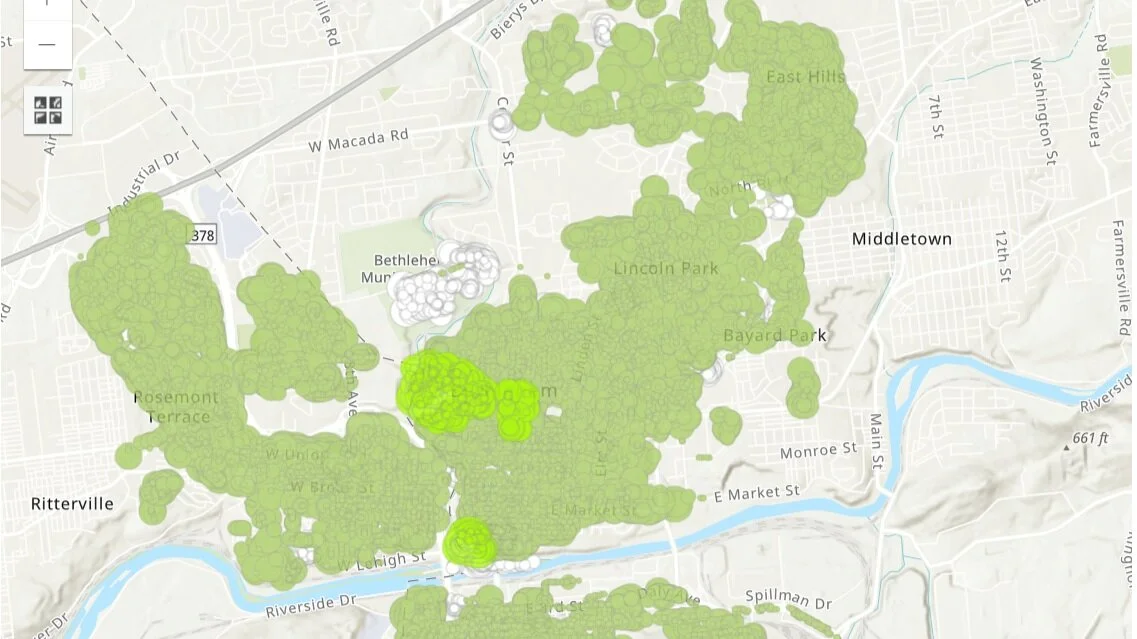Proposed Gateway Warehouse/Distribution Center
What you need to know about the impact on Monocacy Creek
and
How to make your voice heard
The Short version:
A new warehouse is proposed on the site of a current SureStay + Hotel at Rt 22 and Rt 512. The new warehouse would expand on the current footprint of the Hotel into an undeveloped lot to the West. The plans call for storm-water to be routed to detention basins and then to an existing culvert under Rt 22 and into the creek. If you would like to voice your concerns, email PA DEP :
RA-EPWW-NERO@pa.gov and include a cc to pkania@pa.gov
Reference to the Arcadia/Gateway Warehouse Distribution Center Proposal
DEADLINE FOR COMMENTS: Monday, January 8, 2024
The Whole Story:
The Department of Environmental Protection (DEP) public comment period is now open for the Gateway Warehouse/Distribution Center proposed for the property located on Gateway Drive in Hanover Township near the intersection of 512 and Route 22. In addition to concerns about truck traffic creating air- and sound-pollution in an already congested area, storm-water runoff from the proposed use also threatens our High-Quality (HQ) designated Monocacy Creek in Hanover Township in Northampton County.
The presence of an HQ waterway in a densely populated, urbanized community like the Lehigh Valley is exceptionally rare and precious. Hundreds of thousands of people from all walks of life have access to an incredible resource. The Monocacy Creek has borne the brunt of warehouse development over the last decade. The creek has proven to be resilient, but it's unclear how much more stress it can handle.
The DEP is accepting written comments and concerns until January 8, 2024. This is your chance to urge the DEP to prioritize and protect one of our local special-protection streams from harmful degradation by denying this proposal that would send storm-water runoff that carries pollutants and damages our precious wild trout ecosystem.
Written comments and concerns must be submitted to DEP by January 8, 2024.
WHAT: DEP comment period on a distribution center threatening the High Quality (HQ) Monocacy Creek in Northampton County, PA.
DEADLINE FOR COMMENTS: Monday, January 8, 2024
Send your comments and include a reference to the Arcadia/Gateway Warehouse Distribution Center Proposal by email or mail:
By email:
RA-EPWW-NERO@pa.gov and include a cc to pkania@pa.gov
Or mail:
Pamela Kania
DEP Northeast Regional Office (NERO)
2 Public Square
Wilkes-Barre, PA 18701-1915
Background on the Warehouse/Distribution Center
The proposed project will be a 250,000+ square-foot warehouse/distribution center located on Gateway Drive in Hanover Township near the intersection of 512 and Route 22. The project site is currently a hotel plus an additional lot adjacent to the hotel. It will affect the High Quality (HQ) Monocacy Creek, which is also designated as a Class A wild trout stream by the PA Department of Environmental Protection. The proposed building, associated parking lots, and storm-water facilities are located only 1000 feet uphill of the creek. Storm-water runoff will pass through culverts under the building, parking lots and roadways, directing the runoff to an existing culvert built nearly 60 years ago that passes under route 22. The water will then cut through an eroding ravine that leads directly into the Monocacy Creek.
Background on Special Protection Waters
This DEP permit deals with storm-water impacts from this warehouse/distribution center project, your comments should focus on water quality impacts and/or your experience with the Monocacy Creek. Personal stories, experiences, and recommendations are most important for DEP’s consideration.
The DEP is responsible for providing designations for all the water bodies in the state. These designations are determined by several considerations, including aquatic life, primary use, chemical composition, etc. High Quality (HQ) is the second-highest classification that DEP can provide. HQ streams are a unique and valuable community resource, offering not only outstanding trout fisheries and opportunities for recreation, tourism, and aesthetic enjoyment, but also can provide billions of dollars in value to the local economy through both revenue generation and cost savings thanks to flood mitigation, carbon sequestration, and more.
We’ve seen countless warehouse/distribution center projects proposed or constructed in the Monocacy Creek watershed in recent years. These projects – like the one proposed here – risk degrading our local streams by changing natural drainage patterns, clear cutting swaths of forested lands, dramatically increasing impervious surfaces, and creating more cumulative impacts from storm-water runoff. This runoff contains pollutants such as heat, salt, and sediment that cannot always be appropriately mitigated through built storm-water controls and best management practices. In addition to jeopardizing the water quality of our creek by dramatically changing the landscape and increasing impervious surface and polluted runoff, warehouse/distribution centers are threatening the health and safety of our communities through increased tractor trailer traffic, air quality concerns, and noise and lighting impacts, just to name a few.
Thank you for joining us in sending your concerns to DEP.
Monocacy Creek Watershed Association
100 Illick’s Mill Roa
Bethlehem PA 18017
Email: monocacycrkwa@gmail.com
Jane Cook
MCWA secretary/treasurer
610-216-2322


